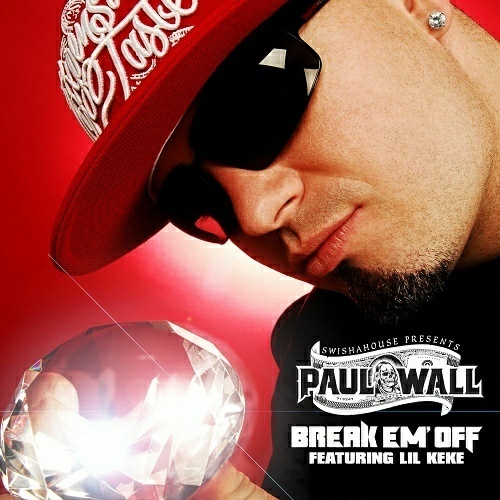

He even spit “just watch how they pick up the slang, just show ’em your grill, and pick up some drank and watch how they do the same.” The city’s hip-hop continued to thrive on its own with contributions from mostly independent rappers like Fat Tony, Kirko Bangz, Doughbeezy, Killa Kyleon, Travis Scott, Guilla, Kyle Hubbard, Lyric Michelle, Blackie and Jon Black. To the chagrin of Chamillionaire and his Grammy-winning hit “Ridin’ Dirty,” the rap world began to sound like Houston. By 2004, mainstream attention zoomed into H-Town because of the success of Mike Jones’ “Still Tippin’” featuring Slim Thug and Paul Wall. The underground success of these projects spawned successful solo careers for SUC rappers like Lil Keke, Big Moe, Big HAWK, Fat Pat, Big Pokey, Z-Ro, Lil Flip, Lil O, and Yungstar as well as Swishahouse rappers Paul Wall, Mike Jones, Slim Thug, and Chamillionaire. On the north side, DJ Michael “5000” Watts and OG Ron C began to try their hand at screwed up music calling their collective of rappers and subsequent record label Swishahouse.įans across the old cotton belt flocked to Houston or their nearest record stores to get these mixtapes. The chopped and screwed mixing technique and concomitant rapping style started on the mixtapes of DJ Screw, which featured a squad of freestyle MCs, affectionately known as the Screwed Up Click (SUC) as well as chopped and screwed versions of popular songs and bars about the superstars from South Side neighborhoods. While 1996 was an important year for Houston hip-hop, seeing the release of two classic albums, the Geto Boys’ reunion album The Resurrection and UGK’s genre-defining Ridin’ Dirty, Houston hip-hop shifted to underground and establishing an entirely new sound that not only defined the city, but one that became unorthodox in hip-hop.įrom 1996 to 2000, Houston developed the chopped and screwed style of hip-hop. Solo records from Geto Boys members Scarface, Willie D, Bushwick Bill, and Big Mike also found glory in the early 1990s.Īround the same time, Port Arthur, TX natives UGK (initially signed to Houston’s Big Tyme Records) and Memphis natives 8Ball & MJG (originally signed to Houston’s Suave House Records) also garnered attention for the city. From 1989 to approximately 1996, the Rap-A-Lot label was able to keep the attention on Houston with success of other local acts like the Convicts, Ganksta N.I.P., Big Mello, the 5th Ward Boyz, and Trinity Garden Cartel. However, it was the success of the Geto Boys’ 1991 hit “Mind Playing Tricks on Me” that put Houston on the map.
/cdn.vox-cdn.com/uploads/chorus_asset/file/21939623/PaulWall_Extrawide.jpg)
Holding the rap game, like wood grain can. Verse 1: Z-Ro Hold up a minute, I'm the King of the Ghetto. Houston first gained prominence with Rap-A-Lot Records and its premier group the Geto Boys, whose claim to fame was raw tales of the inner city with their 1989 sophomore LP Grip It! On That Other Level. From the, from the South (That's how we do it down South) I got the diamonds in my mouth. While Houston’s 30-year-plus hip-hop history has been admired and utilized by many of today’s favorite artists - including Jay Z, A$AP Rocky and Drake - mainstream attention on Houston has come in fits and starts since the late 1980s. H-Town - home of the Geto Boys, Scarface, UGK, DJ Screw, Chamillionaire, Paul Wall, Slim Thug, and even Beyoncé - has become an epicenter of hip-hop culture. The average rap fan imagines Houston as a land of slab drivin’, screw jammin’ music heads, but the city’s hip-hop culture goes deeper than rap.


 0 kommentar(er)
0 kommentar(er)
